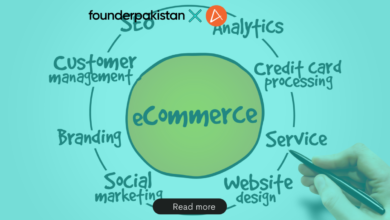A deep dive into the mind of Pakistan’s most judicious investor.
Six months ago, Profit magazine reporter Taimoor Hassan was on the receiving end of ad hominem attacks after his exposé questioned the Airlift business model, valuation, and multiples. One can imagine that if an investigative reporter – whose entire job hinges on being aporetic when faced with any claim of growth or valuations – can face denunciation from the start-up ecosystem stakeholders, what happens to investors that speak guilelessly.
A little over a year ago, at the World Bank KP Tech Summit, Faisal Aftab offered a prediction that drew the acrimony from Pakistan’s unrealistically optimistic start-up ecosystem stakeholders. He simply said that 2022 would be the year of a strong US dollar and high energy prices, which in turn would impact investments, savings, inflation, spending power, and possibly trigger inflation.
“My speculative belief is that the Federal Reserve will have to cut rates otherwise the US economy will collapse,” said Aftab, in an interview with Founder Pakistan. “So that will again create a risk-on global environment. We are in a monetary system transition and technically WW3, which is a non-kinetic monetary and financial war between the West and East – paper vs commodity-backed.”
He expressed concern that since currency reserves accumulated by central banks can be taken away, weaponizing the monetary system will have lasting repercussions, such as ending the PetroDollar monetary system. This, among many other reasons, explains why China is so hell-bent on the digital yuan.
“We will eventually move from a sole global reserve currency to multiple reserve currencies this decade,” said Aftab, in reference to the actions taken by the EU, US, and their allies confiscating the Russian Central Bank’s fiat currency reserves, which were $630 billion as of January 2022. “So all this is playing out with interest rate wars, sanctions, and Swift system abuses.”
This foresight explains the Zayn Capital investment thesis, which views the market with a FinTech lens, visualizing the digitization of the entire economy in a network of platforms that will also bring the informal economy into a digital fold. In interviews, Aftab shared that start-ups offering Buy Now Pay Later (BNPL), working capital financing, factoring, mortgage lending, microfinance, and nano lending would accelerate the ecosystem.
“With this disruption, payments & identification of the source of funds would become seamlessly transparent with no concept of hiding revenue or cash,” said Aftab. “Regulations such as Financial Action Task Force, Organisation for Economic Co-operation and Development, and Automatic Exchange of Financial Account Information are pushing the world towards traceability and a cashless society.”
He predicts that valuations will come down as less capital will be coming to frontier markets, adding that investors that back strong companies with good founders will make good returns over a 10-year curve. But incremental capital will be scarce until Federal Reserve cuts rates – usually with a 6-month lag. He cautioned that any company with an investor’s back should have a 12-18 month runway from today.
“The quality of founders is slightly lower than last year as the best people with scaling experience at Careem, FoodPanda, and Daraz left and founded their own companies in 2021,” he said. “I would rather back one of those companies from last year needing cash vs some of the new founders that I am seeing this year. The ideas are also less interesting. This happens when you have a gap of talent for a few years until a new winner emerges and trained employees again leave to build companies.”
While noting that internet outages have an impact on technology scaling, he believes that the long-term horizon in technology is agnostic to the traditional GDP measures as it is disrupting. Pointing out that political instability is also not good as shutdowns impact scaling, he felt that there is an opportunity in light of the addressable market and bringing users online.
“I have done pre-seed, seed, and Series A deals,” he said. “At a pre-seed stage, I would be less likely to back someone with no prior tech scaling experience as they will not hit the ground running, “ he said. “At pre-seed, you only have an idea and a team so execution ability is what one is judging. Too early to determine product-market fit.”
